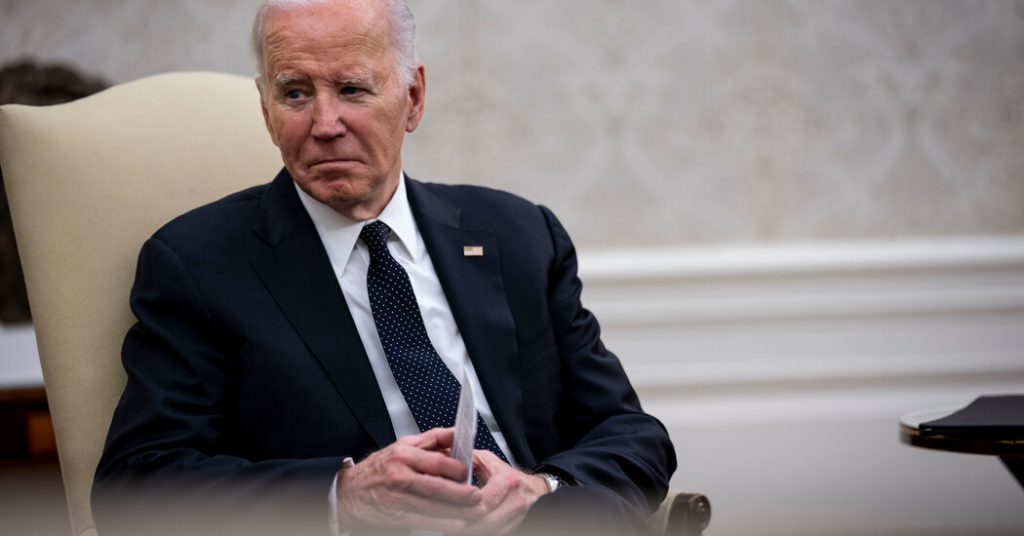President Biden’s decision to confront Prime Minister Netanyahu of Israel over a potential assault on Gaza’s Rafah city was the culmination of months of efforts to influence Israel’s behavior. The president, who initially strongly supported Israel’s war against Hamas, warned Netanyahu against proceeding with the assault, threatening to change U.S. support based on Israel’s actions. Despite the warning, momentum for an invasion of Rafah continued to build. In response to the lack of compliance, Biden has suspended a shipment of bombs and vowed to block the delivery of other offensive arms if Israel proceeds with a full-scale ground invasion.
The president’s frustration with Israel’s handling of the war in Gaza grew over time, as civilian casualties mounted and combat showed no signs of ending. Biden initially preferred to influence Israel privately as a friend rather than publicly pushing its leaders. However, as his patience wore thin, he began expressing his frustrations publicly, criticizing Israel for engaging in indiscriminate bombing and signing a national security memorandum to ensure U.S. weapons were not used in violation of international law. Despite pressure from the political left to take a tougher stance, Biden was initially resistant, preferring to cut Netanyahu slack.
As Biden’s impatience grew, he had tough conversations with Netanyahu and threatened to reconsider U.S. support unless Israel changed course. The president faced a turning point after Israeli forces mistakenly killed aid workers for World Central Kitchen, leading to a “game-changing” moment for Biden. In subsequent calls with Netanyahu, Biden warned that continued U.S. support hinged on Israel’s actions, urging the prime minister to do more to address humanitarian concerns and prevent further civilian casualties. Despite Israeli commitments to increase humanitarian aid, Netanyahu continued to push for an assault on Rafah.
In response to Israel’s refusal to back down on Rafah, Biden decided to delay a shipment of bombs that could be used in the attack. Although the move was symbolic, with other U.S. weapons still flowing to Israel, Biden’s decision sent a clear message. The president vowed not to provide any weapons that could be used in a major Rafah operation, signaling a shift in U.S. policy towards Israel. The delay in the bomb shipment was driven by a combination of domestic pressure and strategic opportunity, as Biden sought to address growing political protests and salvage a broader Middle East diplomatic initiative with Saudi Arabia.
The clash between the U.S. and Israel over the potential assault on Rafah may yet be defused if Israel refrains from a full-scale invasion. While Biden has paused certain arms shipments to Israel, he has not completely cut off weapons support. The administration’s focus on preventing a humanitarian catastrophe in Rafah reflects the president’s commitment to ensuring a strategic and targeted approach to addressing the threat of Hamas, while avoiding unnecessary civilian casualties. The ongoing standoff between Washington and Jerusalem underscores the challenges of balancing support for key allies with concerns over humanitarian and strategic consequences.


